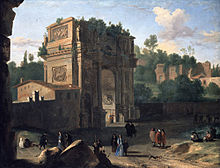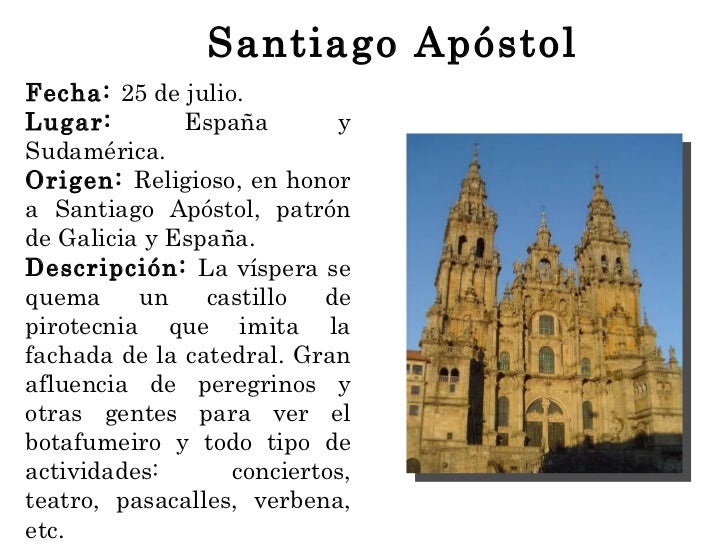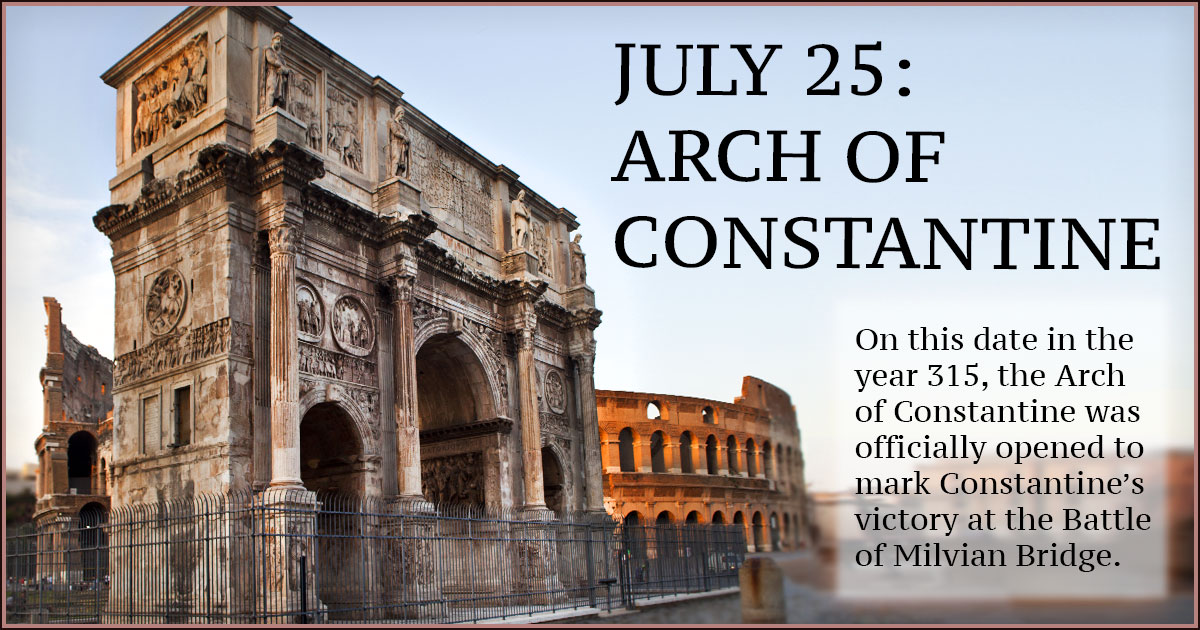The Arch of Constantine (Italian: Arco di Costantino) is a triumphal arch in Rome dedicated to the emperor Constantine the Great. The arch was commissioned by the Roman Senate to commemorate Constantine's victory over Maxentius at the Battle of Milvian Bridge in AD 312. Situated between the Colosseum and the Palatine Hill, the arch spans the Via Triumphalis, the route taken by victorious military leaders when they entered the city in a triumphal procession. [a] Dedicated in 315, it is the largest Roman triumphal arch, with overall dimensions of 21 m (69 ft) high, 25.9 m (85 ft) wide and 7.4 m (24 ft) deep.[1] It has three bays, the central one being 11.5 m (38 ft) high and 6.5 m (21 ft) wide and the laterals 7.4 m (24 ft) by 3.4 m (11 ft) each. The arch is constructed of brick-faced concrete covered in marble.
The three bay design with detached columns was first used for the Arch of Septimius Severus in the Roman Forum (which stands at the end of the triumph route) and repeated in several other arches now lost.
Though dedicated to Constantine, much of the sculptural decoration consists of reliefs and statues removed from earlier triumphal monuments dedicated to Trajan (98–117), Hadrian (117–138) and Marcus Aurelius (161–180), with the portrait heads replaced with his own.[2]
History[edit]
The arch, which was constructed between 312 and 315, was dedicated by the Senate to commemorate ten years (a decennia[b]) of Constantine's reign (306–337) and his victory over the then reigning emperor Maxentius (306–312) at the Battle of Milvian Bridge on 28 October 312, as described on its attic inscription, and officially opened on 25 July 315. Not only did the Roman senate give the arch for Constantine's victory, they also were celebrating decennalia: a series of games that happened every decade during the Roman Empire. On these occasions they also said many prayers and renewed both spiritual and mundane vows.[6] However, Constantine had actually entered Rome on 29 October 312, amidst great rejoicing, and the Senate then commissioned the monument. Constantine then left Rome within two months and did not return until 326.

The Arch of Constantine, Rome - painted by
Herman van Swanevelt, 17th century
The location, between the Palatine Hill and the Caelian Hill, spanned the ancient route of Roman triumphs (Via triumphalis) at its origin, where it diverged from the Via sacra.[9] This route was that taken by the emperors when they entered the city in triumph. This route started at the Campus Martius, led through the Circus Maximus, and around the Palatine Hill; immediately after the Arch of Constantine, the procession would turn left at the Meta Sudans and march along the Via sacra to the Forum Romanum and on to the Capitoline Hill, passing through both the Arches of Titus and Septimius Severus.
During the Middle Ages, the Arch of Constantine was incorporated into one of the family strongholds of ancient Rome, as shown in the painting by Herman van Swanevelt, here. Works of restoration were first carried out in the 18th century,[c] the last excavations have taken place in the late 1990s, just before the Great Jubilee of 2000. The arch served as the finish line for the marathon athletic event for the 1960 Summer Olympics.
:max_bytes(150000):strip_icc():format(webp)/pinocchio-2000-37602ab162084e5596d9d1716d2d377e.jpg)












